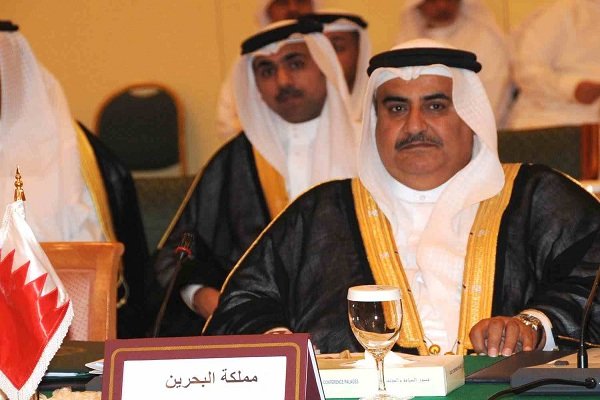Speaking in an interview with the website of the Strategic Council on Foreign Relations, Davood Ahmadzadeh said that Bahrain is one of the smallest countries and has been a full follower of the regional policies of Saudi Arabia, adding: As soon as there was widespread civil unrest in Syria, the country, along with Riyadh and other Saudi-affiliated countries, sought to play a small role in overthrowing Bashar Assad’s regime by providing financial and military assistance to the Takfiri and anti-regime groups in Syria.
He continued: Meanwhile, Bahrain itself was facing widespread protests and public civil disobedience, mainly from the Shiites inside, and in this regard, we saw that the Saudi military forces with an aim of suppressing the Al-Khalifa opposition, were dispatched to Manama and other Bahraini cities, and tried to maintain order and stability for the benefit of the Sunni minority in that island country.
According to the expert, despite all the attempts of the Arab coalition in Syria to overthrow the regime of Bashar Assad and establish a regime aligned with Saudi Arabia, the regional equations in that country moved forward in favor of the Axis of Resistance and after a decade with the failure of the Saudi-Western coalition, Syria was able to establish relative stability.
Referring to the relative stability in Syria, Ahmadzadeh said that now we are witnessing whispers of the resumption of diplomatic relations with Syria by mainly Sunni Arab countries.
The expert on the Middle East affairs explained that the UAE was the pioneer of re-establishing relations with Damascus, noting: As Bahrain’s policies are defined and explained as a function of Saudi regional policies, and the country has no independent role in the regional equations, today, given Riyadh’s desire to start talks and resume formal political relations with Damascus, Bahrain is also seeking to renew political relations and play a role in such complex regional equations of the Middle East.
Ahmadzadeh stressed: The need of the Syrian economy for reconstruction after complete devastation and the need for massive financial investments has led Bahrain to try to reap some economic benefits from this vast opportunity. Therefore, one of the main messages of Manama’s desire to talk to the Syrian regime is to advance economic interests.
Referring to the complex issues of regional rivalries, he said: Saudi-led Arab countries are now seeking to fill the power vacuum in the region and play a more active role on the day after the war and the reconstruction of Syria, after the US president assigned the Middle East affairs to the regional countries themselves.
According to the expert, the historical role of Syria and its system in the regional equations, given the close relations with Iran and common border with Lebanon and Israel, has led “Saudi Arabia and Bahrain” to try to limit the role of Iran and its allies in Syria and by promising economic assistance and investment in industries and other sectors of Syria, try to diminish or, in their point of view, make ineffective the presence of the Islamic Republic of Iran and the Axis of Resistance in that country.
He stressed that the second message in Manama’s attempt to resume relations with Damascus goes back to the issue of regional rivalries, especially Iran’s traditional influence in Syria and, consequently, in Shamat.
The expert on the Middle East affairs, emphasizing that the new regional equations have undergone a profound transformation, continued: After a decade of war and religious and ethnic strife in West Asia, especially Syria and even Yemen, we are now witnessing new developments. In other words, the re-emergence of Saudi Arabia as Iran’s main rival in the region to continue negotiations and establish formal relations with the Islamic Republic of Iran sends the message that other countries in the region, especially a country like Bahrain that has no independent policy and important role in regional equations, in the case of resumption of formal Tehran-Riyadh diplomatic relations will inevitably moves towards reduction of tensions.
Ahmadzadeh, pointing out that Syria is also seeking to regain its historical role in the West Asian equation with a relative liberation from the comprehensive civil war and establishment of stability, added: In this regard, Syria, while maintaining friendly and close relations with Iran, is trying to take advantage of the extensive economic investments of the Arab countries.
Ahmadzadeh also referred to the issue of the Joint Comprehensive Plan of Action (JCPOA) and said if a final agreement is reached and the United States returns to the JCPOA, the countries of the region will inevitably turn to the political solutions and negotiations to get out of the regional problems, adding: Therefore, Saudi Arabia, Bahrain, and even the UAE, while still maintaining some regional concerns about Syria and Yemen, but the JCPOA agreement will ultimately make it clear to those countries that they will not be able to meet their political and even economic demands in Syria and other crisis-hit areas of West Asia through military conflict and the imposition of financial costs with the help of Takfiri groups. Therefore, a good agreement in Vienna can also facilitate the renewal and strengthening of regional relations.










0 Comments